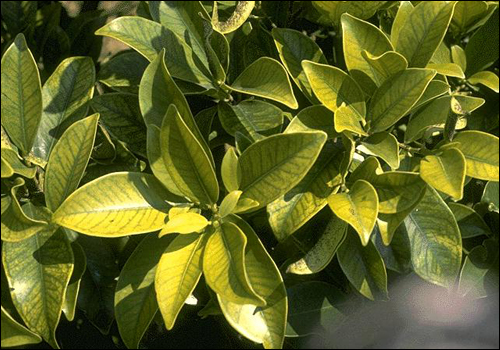Manganese (Mn) plays an important role in plants.. Considered a micro-nutrient, it is one of the essential nutrients required for growth. Plants depend on it to aid in photosynthesis, chloroplast formation, nitrogen metabolism and synthesizing enzymes.
Tissue testing is an excellent way to determine if a tree or shrub is Mn deficient. Certain trees are inefficient in utilizing Mn. Even though it can occur in any plant species, the most common are pin oaks, maples, dogwoods and river birches. Signs or symptoms would be pale green or yellow leaves with darker green veins.
Mn deficiency is a serious, widespread plant nutritional disorder. It is often found in dry, well-aerated and calcareous soils, as well as in soils containing high amounts of organic matter. Bio-availability of Mn can decrease far below the level that is required for normal plant growth
To correct Mn deficiency, use a solution of Manganese Sulfate (MnSO4). It can be applied to the soil but can also be applied as a foliar spray.
Doggett Corporation has several producets that can help correct Mn deficiency.
Super-Micro Mix Liquid, Chelated Micro-Mix Soluble, Chelated 5% Mn Liquid, and Chelated 8% Mn Liquid.
Here is an article from Wikipedia on the importance of Manganese in plants. If you have any questions, feel free to contact us.

